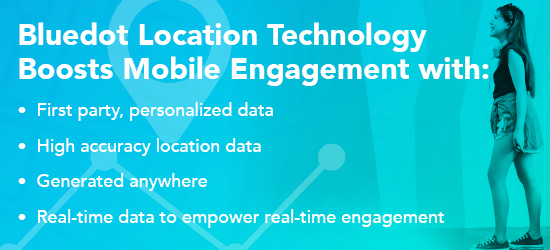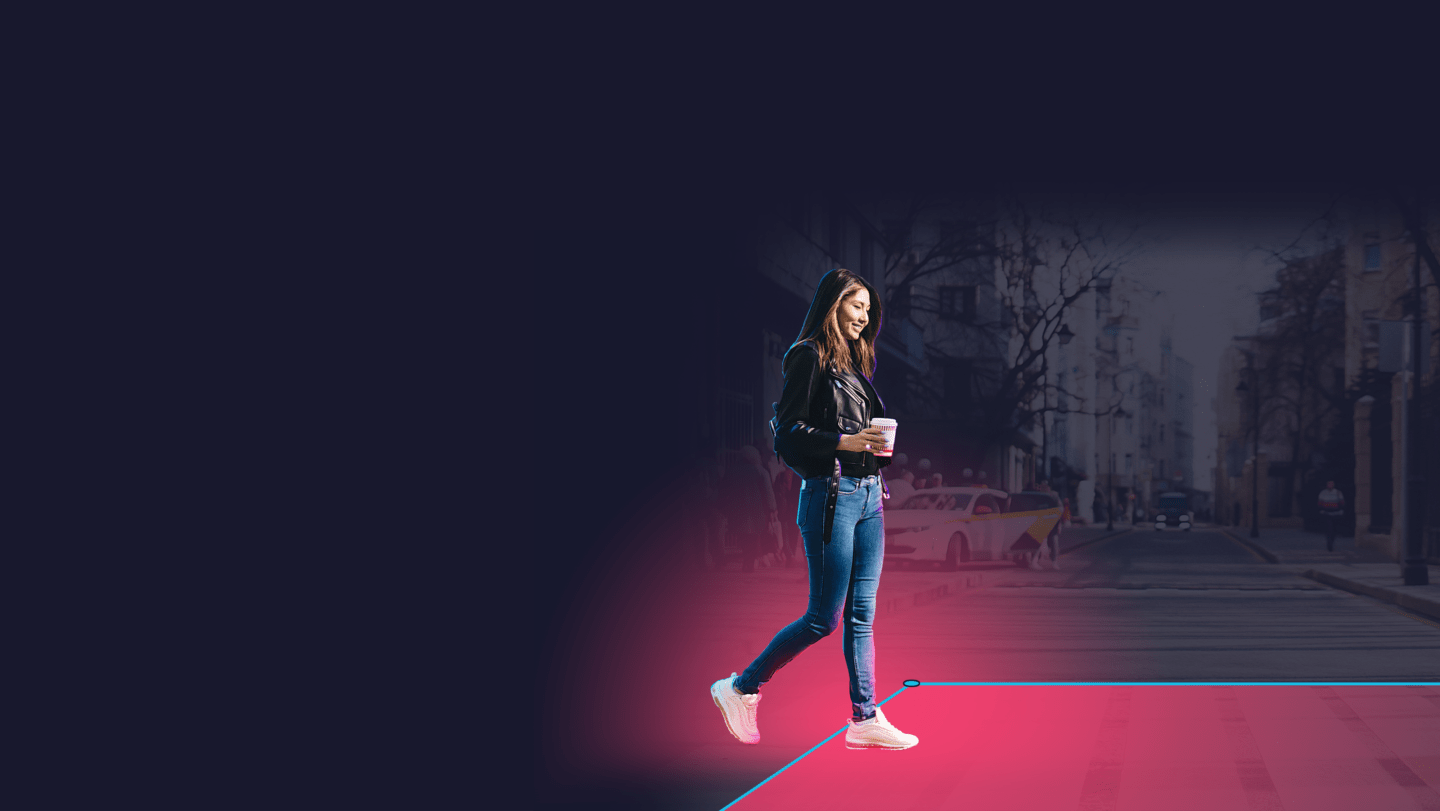
How Location Accuracy Guides Omni-Channel Success
Customer expectations are at the heart of enterprise innovation and location accuracy is no different. As consumers, we've learned to expect the same personalized brand experiences offline that we find online. Consider how customers move in the physical world while sifting through information: jumping between platforms and devices, finishing conversations in person that had begun on social, continued through text, and occasionally referenced voice activated assistants to prove a point.
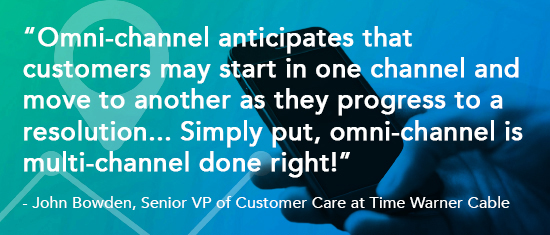
While moving between locations, devices, and information sources the average consumer is exposed to over 10,000 brand messages in a day. The majority of these messages are quickly forgotten, but a few complement each other to build an organic brand narrative that follows the customer's journey; slowly building trust, intuitive loyalty, and conversions.
How do the smart messages that get through change from outside to inside a brick-and-mortar location, desktop to mobile and so on? How is that narrative relevant and meaningful to the 80 percent of shoppers who use their mobile devices inside physical stores, learning about the store's products and pricing as well as their competitors' locations?
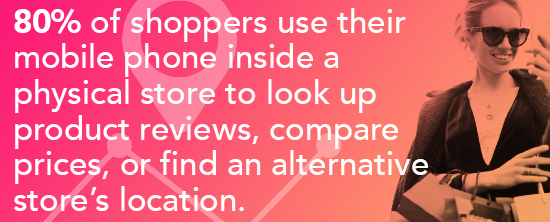
In order for brands deliver a truly relevant omni-channel experience, they must integrate accurate location data with their CRM tools. In other words, create robust customer profiles to deliver high impact engagement when and where it matters.
Three Ways Location Data Accuracy Can Guide Your Omni-Channel Strategy:
1. Identify where their customers are physically, digitally, and within their customer journey
Bridging the online-to-offline experience can be complex with the wrong tools. Using accurate, first-party location data reduces your chances of delivering spam or irrelevant messaging to your customers. A first step is measuring in-store conversions from your entire ad network: search, social, push, radio, and billboard advertising (to name a few).
Using Bluedot’s location technology, Cox Automotive created geofences around 3,500 car dealerships and were able to confidently track which lots customers were visiting and for how long, whether they took a test drive, and whether or not they ended up buying a car. Location data accuracy made it possible for Cox Automotive to correctly attribute what searches in their online marketplace led to a final sale, allowing them to then redefine and expand its car advertising business.
2. Pinpoint high conversion behaviors and hot trigger moments within that journey
Since 80 percent of smart phone users consult their phones on purchases they are about to make in-store, getting information into their phones that speaks to the in-store environment is critical.
If you're one of three cafes in a high foot traffic area near a train station, understanding exactly when and how often customers are walking into your competitor's locations can be a game changer. Integrating this information with an existing loyalty program or enticing window display can set your location apart from the others.
3. Deliver relevant messaging and engagement
Marriot has partnered with Salesforce to create better continuity in their customer engagement across all messaging channels including: guest call centers, on-property experiences, web and mobile. But having a clear brand and integrated system is just the beginning. Brands who know how their voice changes between platforms and grows within conversations and loyalty programs are able to build trust and deliver services intuitively to their customers faster.
Mobile engagement platforms guide enterprises' messaging across this complex landscape to deliver relevant brand experiences.
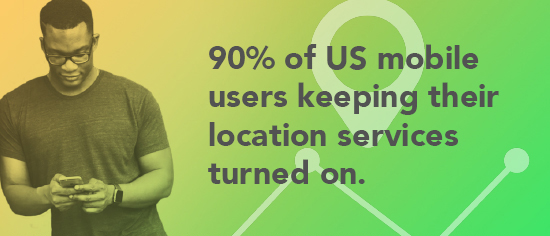
Overcoming the hurdle of setting up costly hardware, brands can easily scale while maintaining personalized engagement directly with their customers in real time with Bluedot. With 90 percent of US mobile users keeping their location services turned on and 39 percent of customers spending more when they received a personalized mobile coupon, using highly accuracy location data has becoming less of a competitive edge for brands as it is the the gold standard in omni-channel engagement.
The Difference Between Location Data and Accurate Location Data
Regardless of how large, sophisticated or innovative an enterprise is, it is a very common challenge to distinguish between different location technologies or between high quality and low quality providers. Most solutions aren’t accurate enough or able to scale. Many aren't battery friendly or secure.
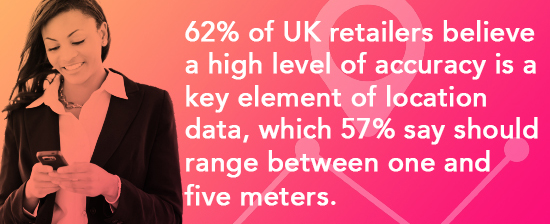
According to a survey of 157 UK retail executives who currently use some kind of location data, 57 percent said that a geo-location range of one to five meters would provide them with quality location data. However, most enterprises currently rely on inaccurate third party data that is sourced through a programatic bidstream and is nearly impossible to confirm with the one to five meter range.
Location accuracy, ease of scale, security, and battery usage have been our focus since we started Bluedot. We created the technology and services that could replace native location services on mobile, and that brands or other vendors could leverage to connect with their customer.
From the start, we wanted to connect each individual with the world around them effortlessly, in relevant ways. As a result, we created the technology and services that could replace native location services on mobile, and that brands or other vendors could leverage to connect with their customer. All of the software we've developed is tied to each individual device, to the person who is having the experience.
Bluedot's high-accuracy location data means that brand and mobile engagement platforms get:
Mobile-based 1:1 location detection.
Bluedot technology is 20 times more precise than any other location service. With first party location data, enterprises can meet the needs of their customers faster and identify new revenue opportunities sooner. Brands can now know exactly how your customers are engaging with your campaigns and use those insights to build smarter campaigns and track attribution and accurately track attribution.
Hardware-free, high accuracy location detection.
Bluedot is the only company in the world with Geoline™ technology, a razor thin virtual tripwire that can trigger mobile content anywhere in the world.
Scalable location detection that can be set anywhere.
Supporting millions of locations and users around the world can seem daunting. Our location service easily scales on a global level so brands like Cox Automotive and Transurban can set limitless geofences to deliver superior service to their consumers.

Author
Schedule a free demo today to see how Bluedot can help your business.
